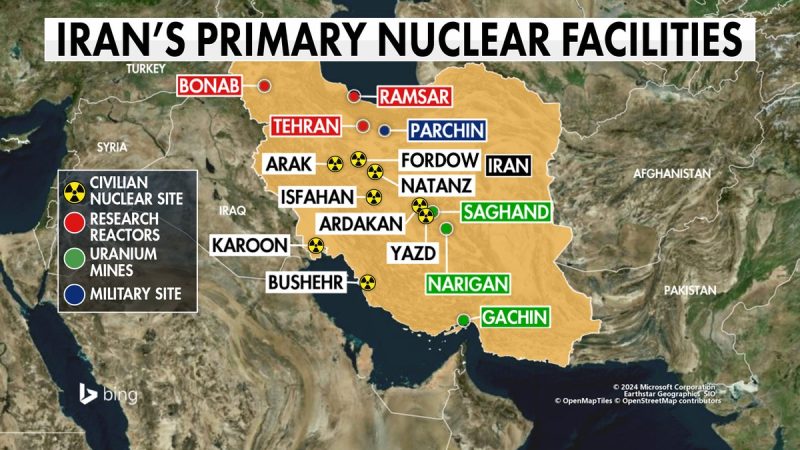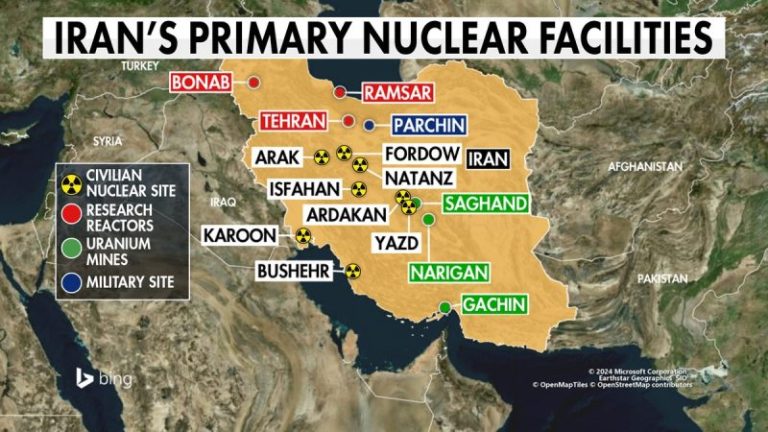
JERUSALEM – After 12 days of fighting, President Donald Trump and Israeli Prime Minister Benjamin Netanyahu declared victory against Iran’s nuclear program.
Trump declared three nuclear sites had been obliterated, as Netanyahu announced that Israel had ‘removed an immediate dual existential threat: both in the nuclear domain and in the area of ballistic missiles’ – achievements the U.N.’s International Atomic Energy Agency (IAEA) failed to reach throughout some 20 years of monitoring Iran’s nuclear activities.
Dr. Or Rabinowitz, a nuclear proliferation scholar from the Hebrew University of Jerusalem and a visiting associate professor at Stanford University, told Fox News Digital that the IAEA ‘cannot, by itself, stop a country that wants to divert nuclear material and technology from its civilian program to its military program.’
‘It can warn, and that’s what it has been doing,’ she said. ‘Sometimes these warnings led to United Nations Security Council resolutions, and sometimes they didn’t, but the IAEA by itself, can’t do more than that – it is only as strong as the board members and the countries that participate in it.’
Days before Israel launched its military assault on Iran with the aim of removing the nuclear – and conventional – weapons threat, the global nuclear watchdog reported that Iran had an estimated 408.6 kilograms (nearly 901 pounds) of uranium enriched to 60%, enough to make some nine nuclear bombs.
The report, which also criticized Iran’s lack of cooperation with the IAEA, prompted the agency’s board of governors, for the first time in 20 years, to declare that the Islamic Republic was in breach of its non-proliferation obligations.
‘We shouldn’t be surprised by this failure, and we should add to this failure, the failure of the United Nations,’ said Dr. Yoel Guzansky, a senior fellow at the Institute for National Security Studies at Tel Aviv University.
Guzansky highlighted the fact that just a week ago, in the midst of launching hundreds of ballistic missiles into Israeli towns and cities, Iran’s Foreign Minister Abbas Araghchi addressed the U.N. Human Rights Council in Geneva.
‘Iran was welcomed there, and Israel was bashed,’ he noted.
‘It just shows that the U.N. system has long failed, and is long in need of remodeling, remaking, rebuilding,’ Guzansky continued, adding that compared to other U.N. bodies, ‘the IAEA is fairly okay.’
‘It’s not black and white, it has had some achievements, but it depends on what your expectations are,’ he continued. ‘I don’t think anyone expected that the IAEA would entirely prevent Iran.’
Guzansky said that two decades of inspections and such reports had actually allowed Israel, and the U.S., to ‘gather intelligence and an understanding of Iran’s nuclear program’ – a fact that was tested over the past week and a half.
Iran has consistently maintained that all its nuclear activities were entirely peaceful and that it would never seek to develop or acquire nuclear weapons.
‘The real problem here isn’t necessarily the IAEA, it’s that Iran has been cheating for 20 years and has not been playing a straight bat,’ said Alan Mendoza, Executive Director of the Henry Jackson Society.
‘Iran has been confusing and tricking and secretly developing programs, which the IAEA has not been able to access,’ he said, adding, ‘so, in many ways, it’s not the IAEA fault, per se, it doesn’t have any enforcement capabilities — its job is just to monitor.’
Mendoza also said that Iran’s ability to advance its nuclear ambitions and enrich uranium to weapons grade level was ‘really the fault of the international community, rather than an agency.’
‘This could have been cracked down upon years ago, as we have now seen, whether by military or other means, to actually force Iran into compliance,’ he said.
‘What this ultimately shows you is that when you have an international malefactor who continues to want to game the system, the only way to deal with them is to blow up the system and say, ‘Okay, you want to play it that way,’ well, here’s our response.’
Despite the U.S. and Israel’s successful use of force, the IAEA has held back from commending their actions.
At an emergency session of the agency’s board members on Monday, Rafael Grossi, the IAEA’s Director General, was still urging diplomacy and warning that fighting risked ‘collapsing the global nuclear Non Proliferation regime.’
‘There is still a path for diplomacy, we must take it, otherwise violence and destruction could reach unimaginable levels, and the global Non-Proliferation regime that has underpinned international security for more than half a century could crumble and fall,’ he said, without a word about Iran’s lack of transparency and its clear violation of international agreements over more than two decades.
But on Tuesday, two days after the U.S. military carried out massive precision strikes on three key nuclear sites in Iran, Grossi told Fox News’ Martha MacCallum that his agency did not know where nearly 900 pounds of potentially enriched uranium is now located, after Iranian officials said it had been removed for protective measures ahead of the US strikes on nuclear facilities in Iran.
‘Like all the international bodies who have been condemning US and Israeli action, these organizations exist for the purpose solely of diplomacy,’ Mendoza said, adding, ‘The agency doesn’t have any military function. It has no recourse to it. It can’t call for it, so, if you think about it, all they’re doing is merely protecting their position within the international system.’
Requests for a response from the IAEA were not immediately answered on Wednesday.

